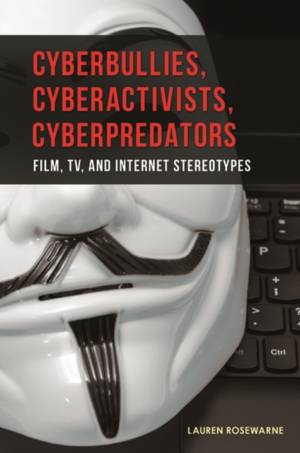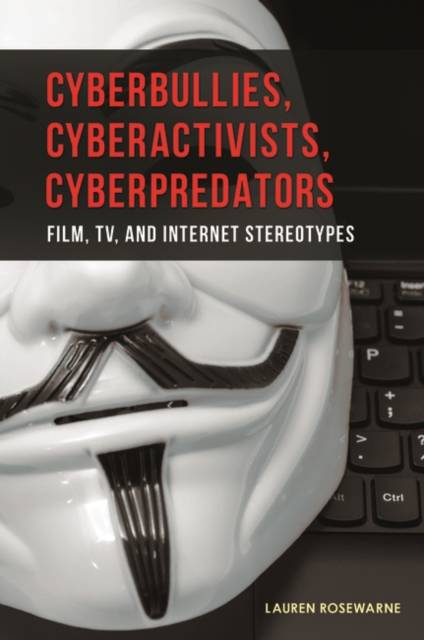
- Retrait gratuit dans votre magasin Club
- 7.000.000 titres dans notre catalogue
- Payer en toute sécurité
- Toujours un magasin près de chez vous
- Retrait gratuit dans votre magasin Club
- 7.000.0000 titres dans notre catalogue
- Payer en toute sécurité
- Toujours un magasin près de chez vous
Cyberbullies, Cyberactivists, Cyberpredators
Film, TV, and Internet Stereotypes
Lauren Rosewarne
Livre relié | Anglais
127,45 €
+ 254 points
Description
Written by an expert in media, popular culture, gender, and sexuality, this book surveys the common archetypes of Internet users--from geeks, nerds, and gamers to hackers, scammers, and predators--and assesses what these stereotypes reveal about our culture's attitudes regarding gender, technology, intimacy, and identity.
The Internet has enabled an exponentially larger number of people--individuals who are members of numerous and vastly different subgroups--to be exposed to one other. As a result, instead of the simple "jocks versus geeks" paradigm of previous eras, our society now has more detailed stereotypes of the undesirable, the under-the-radar, and the ostracized: cyberpervs, neckbeards, goths, tech nerds, and anyone with a non-heterosexual identity. Each chapter of this book explores a different stereotype of the Internet user, with key themes--such as gender, technophobia, and sexuality--explored with regard to that specific characterization of online users. Author Lauren Rosewarne, PhD, supplies a highly interdisciplinary perspective that draws on research and theories from a range of fields--psychology, sociology, and communications studies as well as feminist theory, film theory, political science, and philosophy--to analyze what these stereotypes mean in the context of broader social and cultural issues. From cyberbullies to chronically masturbating porn addicts to desperate online-daters, readers will see the paradox in popular culture's message: that while Internet use is universal, actual Internet users are somehow subpar--less desirable, less cool, less friendly--than everybody else.Spécifications
Parties prenantes
- Auteur(s) :
- Editeur:
Contenu
- Nombre de pages :
- 432
- Langue:
- Anglais
Caractéristiques
- EAN:
- 9781440834400
- Date de parution :
- 25-01-16
- Format:
- Livre relié
- Format numérique:
- Genaaid
- Dimensions :
- 160 mm x 239 mm
- Poids :
- 907 g

Les avis
Nous publions uniquement les avis qui respectent les conditions requises. Consultez nos conditions pour les avis.






